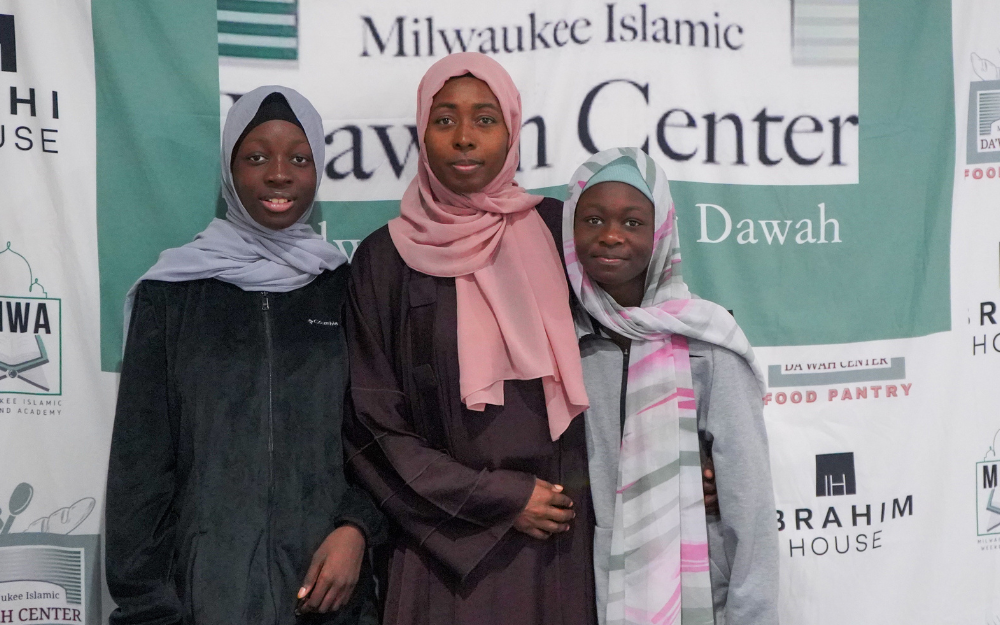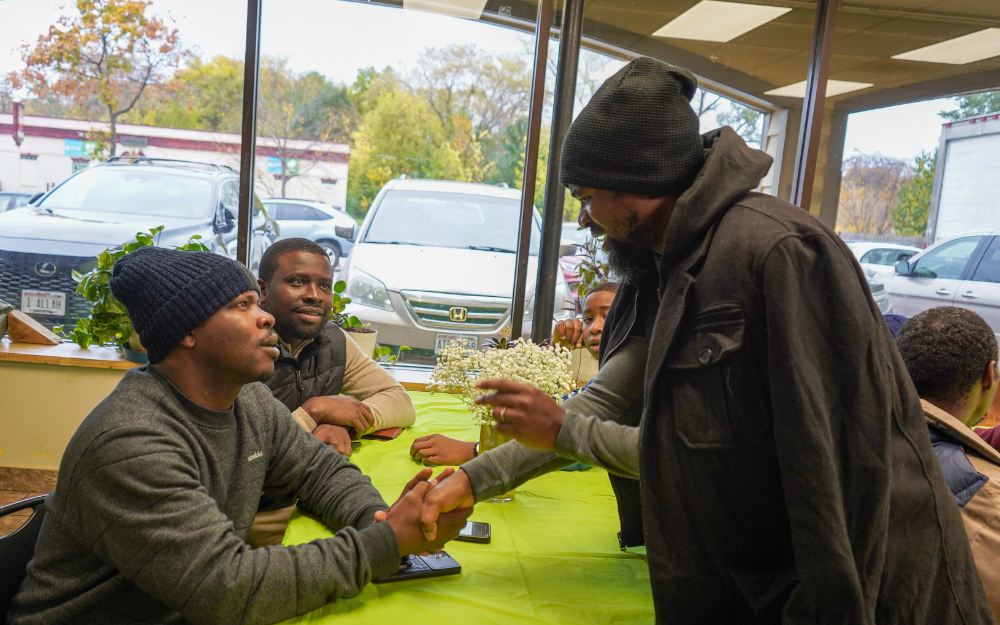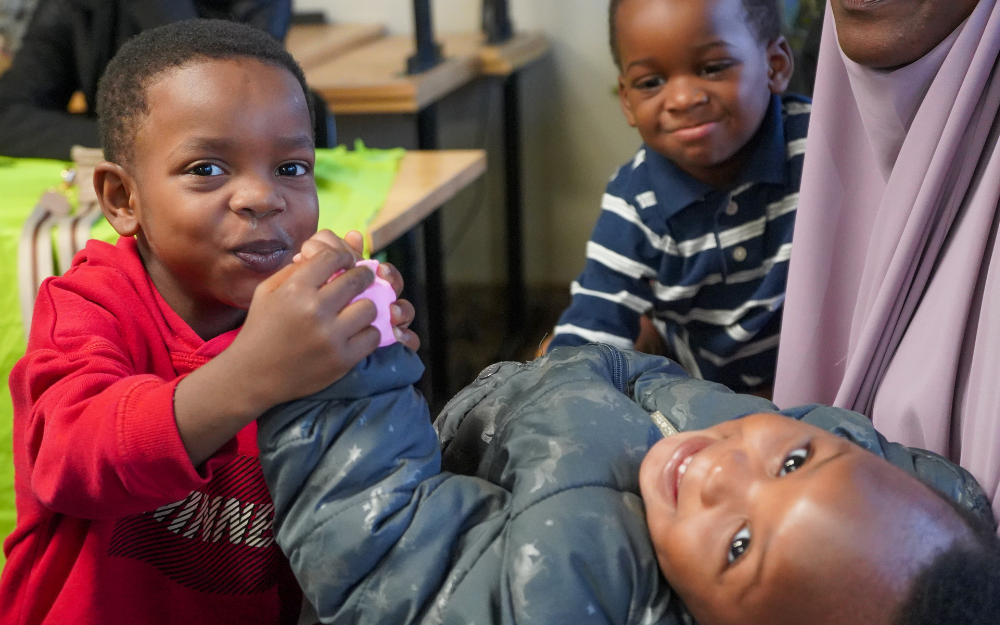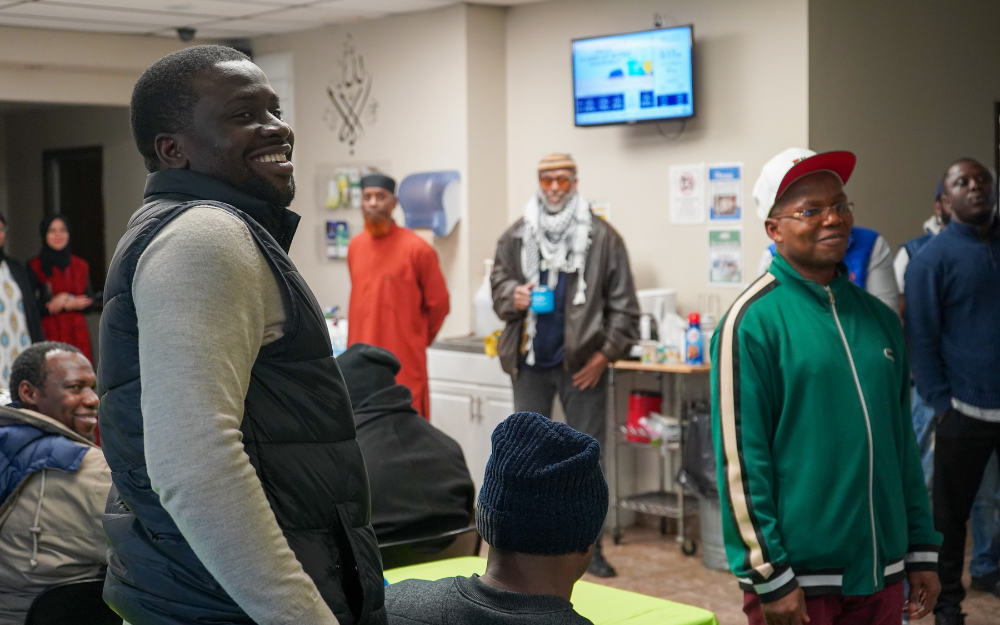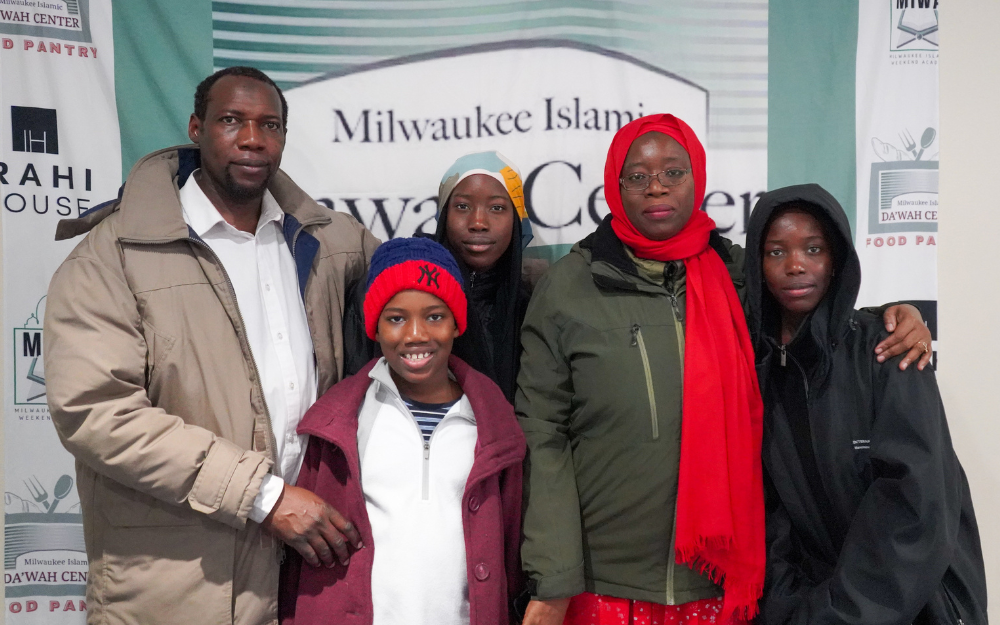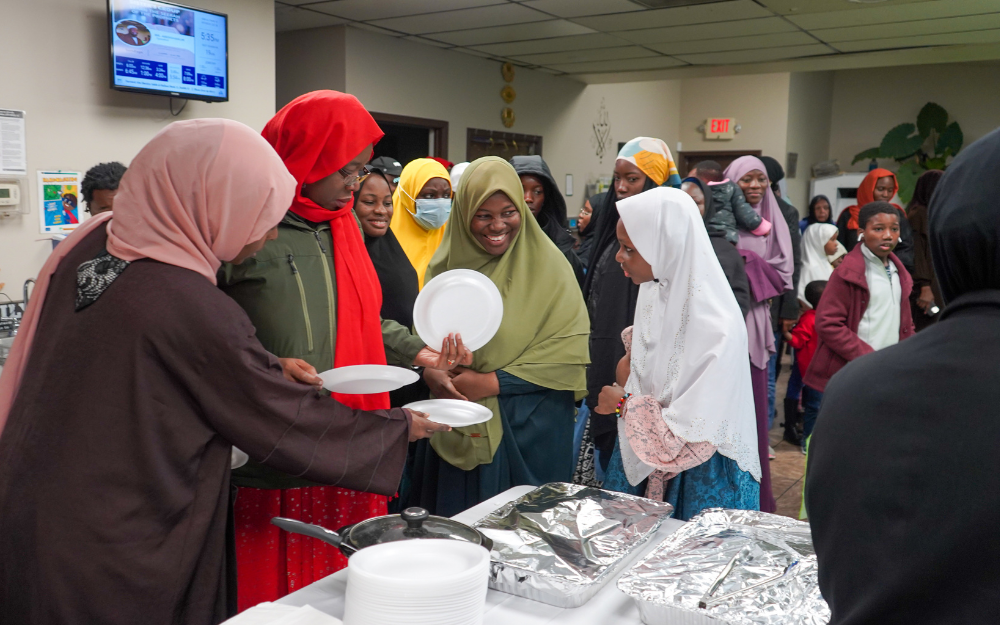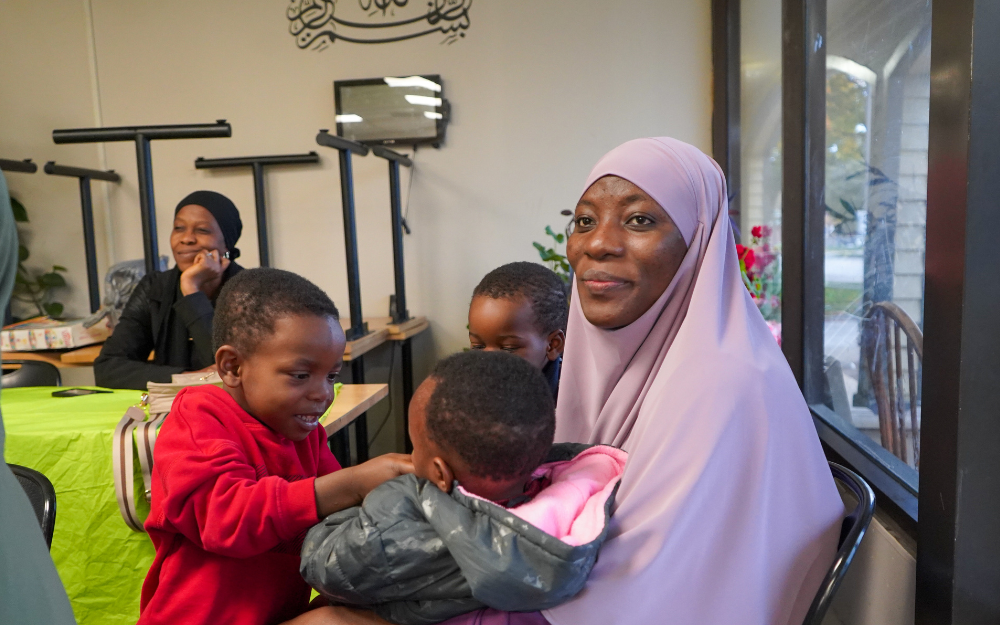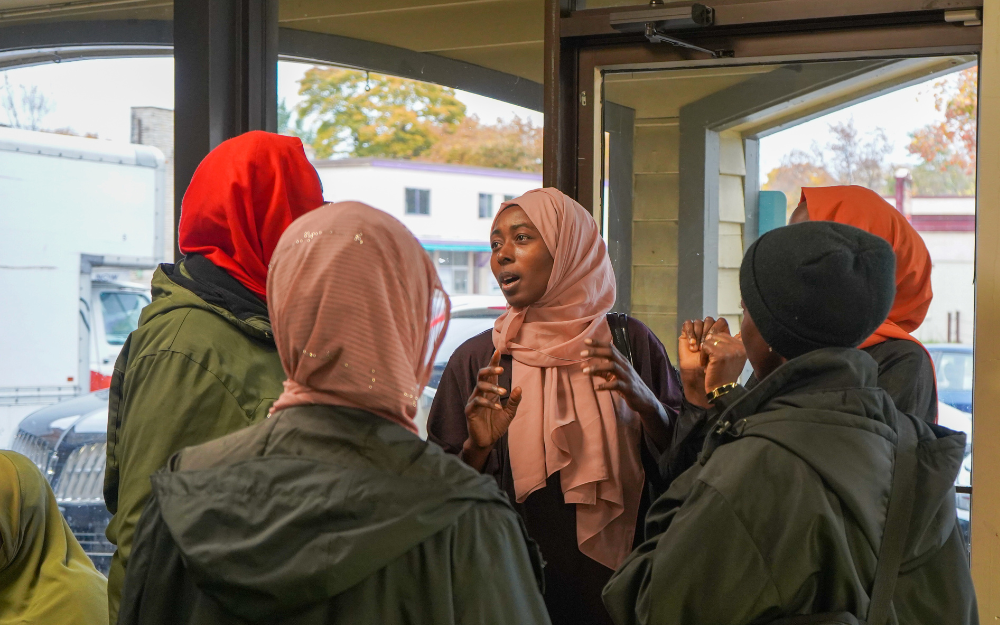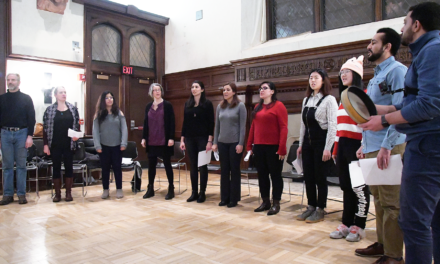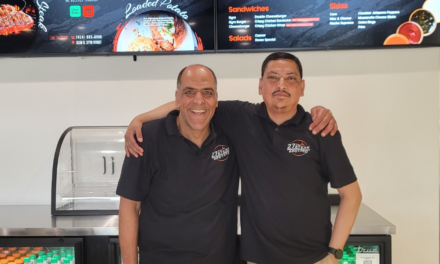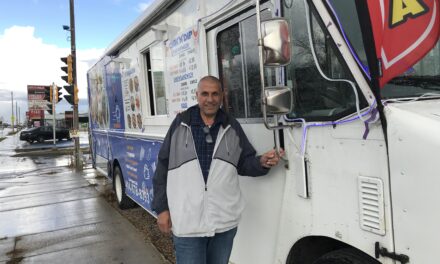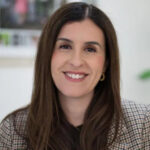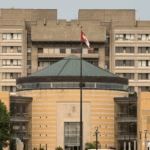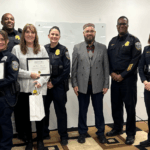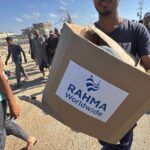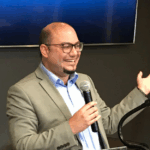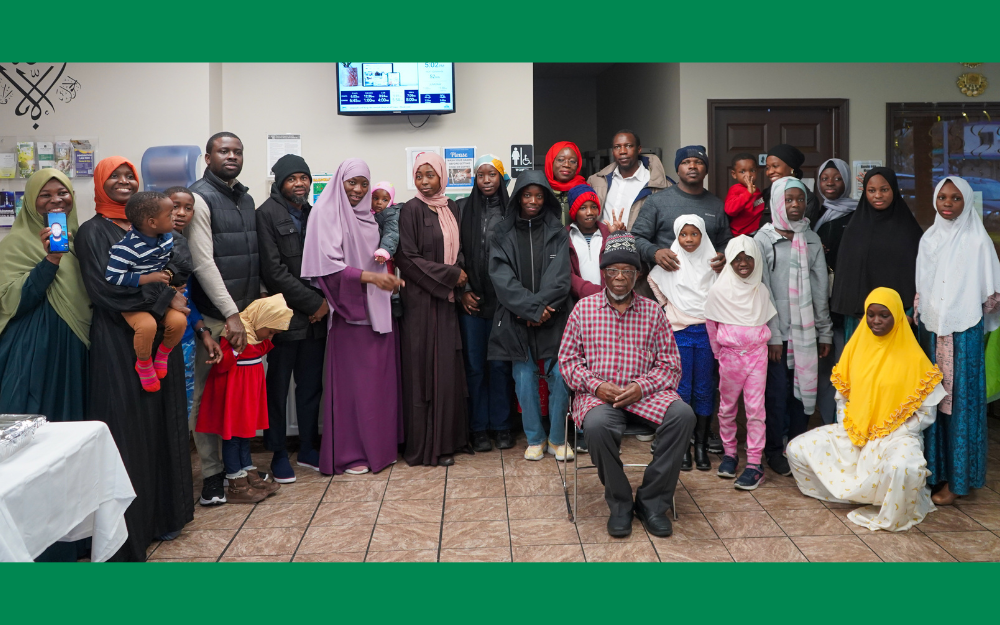
Photos by Kamal Shkoukani
Milwaukee Islamic Dawah Center hosted a welcome event Oct. 28 for new teachers Milwaukee Public Schools recruited from Nigeria to help fill the teacher shortage.
Facing a growing teacher shortage, Milwaukee Public Schools hired 147 teachers from abroad to fill this year’s vacancies. MPS began hiring international teachers in 2011—maybe a dozen or two to teach language courses. Now it is recruiting in all fields, especially special education, science and math, according to multiple news reports.
Teachers from 17 countries arrived in Wisconsin in late summer and early fall. Many, maybe most, had never heard of Milwaukee or Wisconsin before or experienced a Midwest winter.
Strangers in a strange land, they didn’t know how to get from Point A to Point B. Where could they find a doctor or dentist or get a haircut? Where should they keep their money? How do you open an account?
Where could they buy the ingredients for familiar meals or warm clothes for Wisconsin’s brutal winters? Which school or childcare would be best for their children? Where could they worship and meet others?
So, when a Nigerian friend of a friend of a friend in Indiana told his Nigerian friend in Milwaukee, Dr. Musa D. Hassan, that someone from Nigeria was going to Milwaukee for the first time, Hassan contacted his friend, Will Perry, director of the Milwaukee Islamic Dawah Center. Perry called Musa Konneh, leader of the Mandingo Community Committee, a group that helps welcome and support newcomers from Africa. The Mandingo are a very large ethnic group indigenous to West Africa.
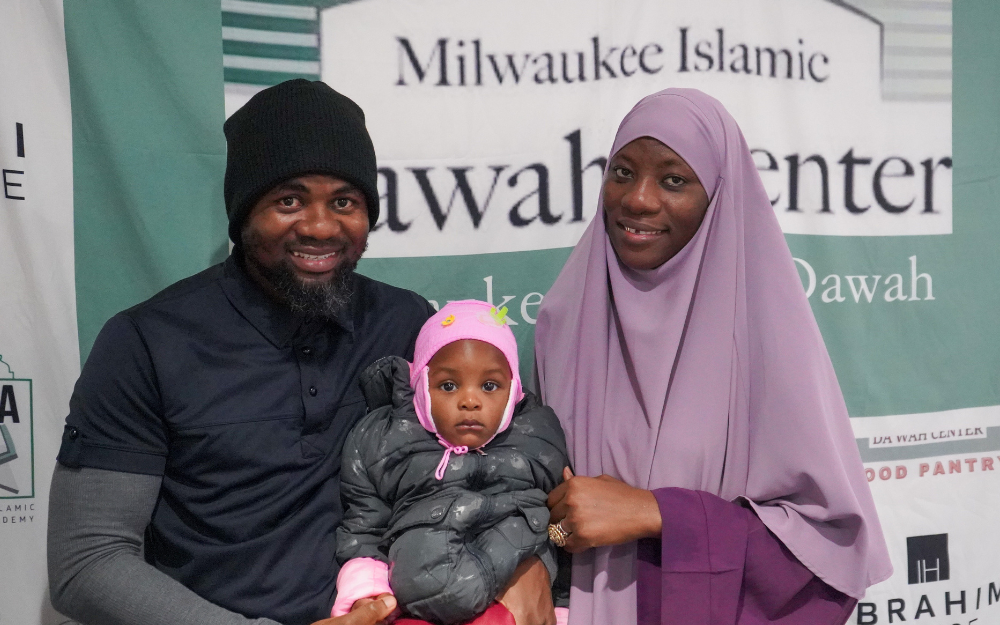
For starters, “we wanted to help them connect with the larger Nigerian community and to help Muslim newcomers make a connection with the mosque,” Perry said. “Several of them live within 10 minutes of the Dawah Center. We wanted to make sure they know they are welcomed here and that we can be a kind of nucleus for them.”
Together they organized a meeting with some of the new MPS teachers from Nigeria and their families to ask about their needs and see how they could help. Following the initial meeting, the Milwaukee Islamic Dawah Center, 5135 N. Teutonia Ave., threw a welcome party for them.
“It was very welcoming,” said Haleema Osho, a middle school math teacher. “I felt like I was at home.”
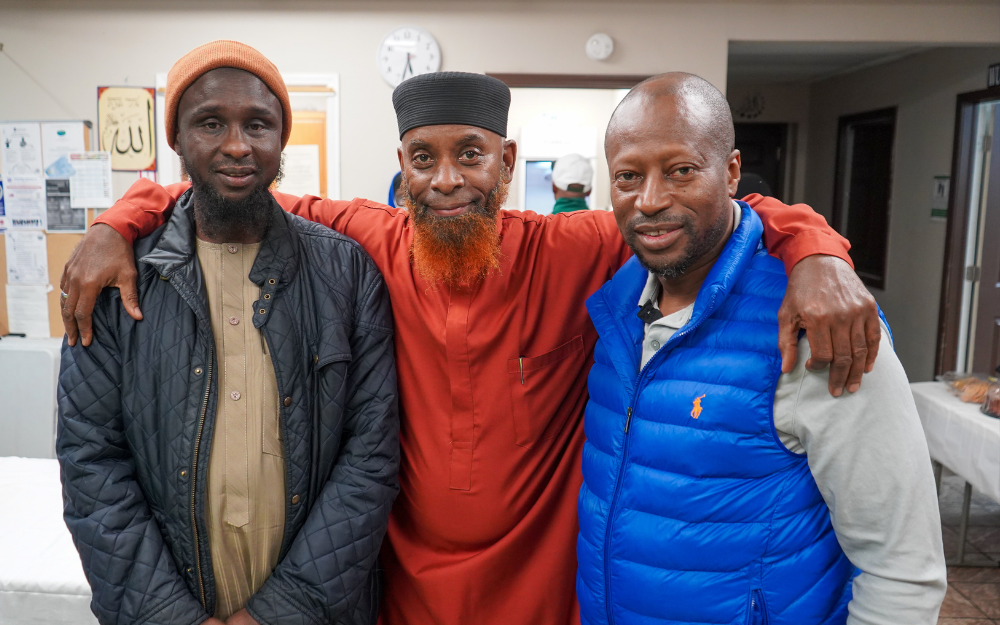
(Left to right) Musa D. Hassan, Ph.D., Will Perry and Musa Konneh sought ways to help newcomers from Nigeria settle into their new lives in Milwaukee.
“The Dawah Center event was really nice,” agreed Hassan. “This is one of the good things you do to make someone feel comfortable.” When he was a doctoral student in information science at the University of Wisconsin-Milwaukee, Hassan and his professor wrote a paper published in 2020 on “the information needs and seeking behaviors of African refugees in the United States.” While the MPS teachers are immigrants on working visas, not refugees, “they still need everything – all the basics. When you are in a new place that’s nothing like home there are so many things you need to know,” Hassan said.
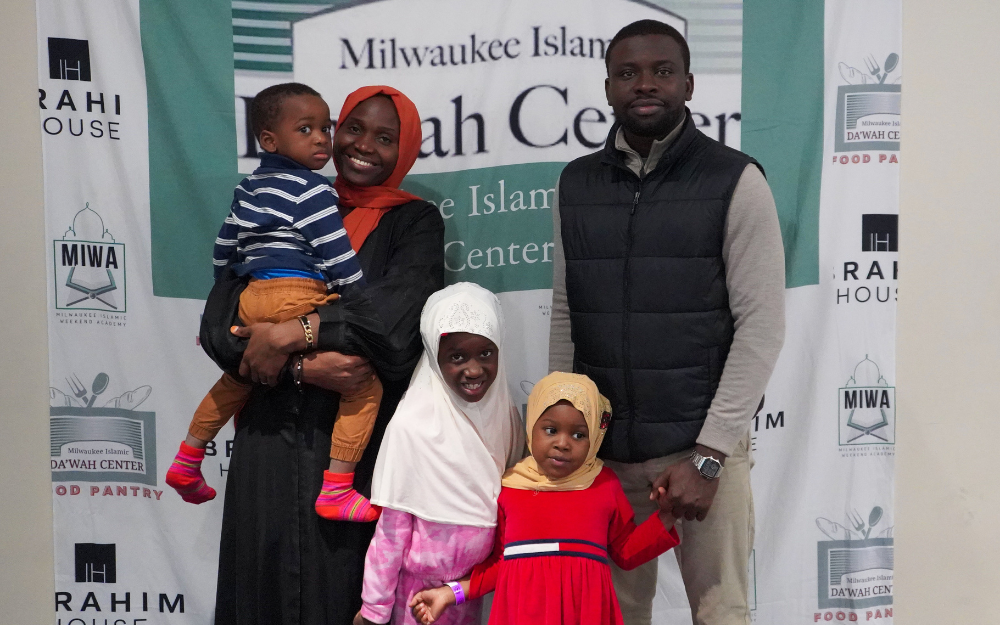
Sharing information
Until she was recruited by MPS to teach middle school math, Osho had not heard of Milwaukee, she confessed. “Chicago, Texas, yes but not Milwaukee.” She arrived Aug. 11 with her husband and son, who is 1 year and 3 months old.
One of the first things they did was search for a mosque, she said. She found the Islamic Society of Milwaukee and the Dawah Center and visited both. The Dawah Center is much closer to where they live.
Working for MPS daily until 4 p.m., she can’t go to Friday prayers unless there is a holiday. Still, she values the opportunity to participate in events at the mosque when she is not working.
“When I came initially, I was the only Muslim in the group,” she said. “When other Muslim teachers came, we started going to the Dawah Center. It feels like home.”
Osho met with women at the Dawah Center who wanted to help them settle in Milwaukee, she said. “They looked at our needs. I have a baby. I needed a car seat and a stroller, for example.”
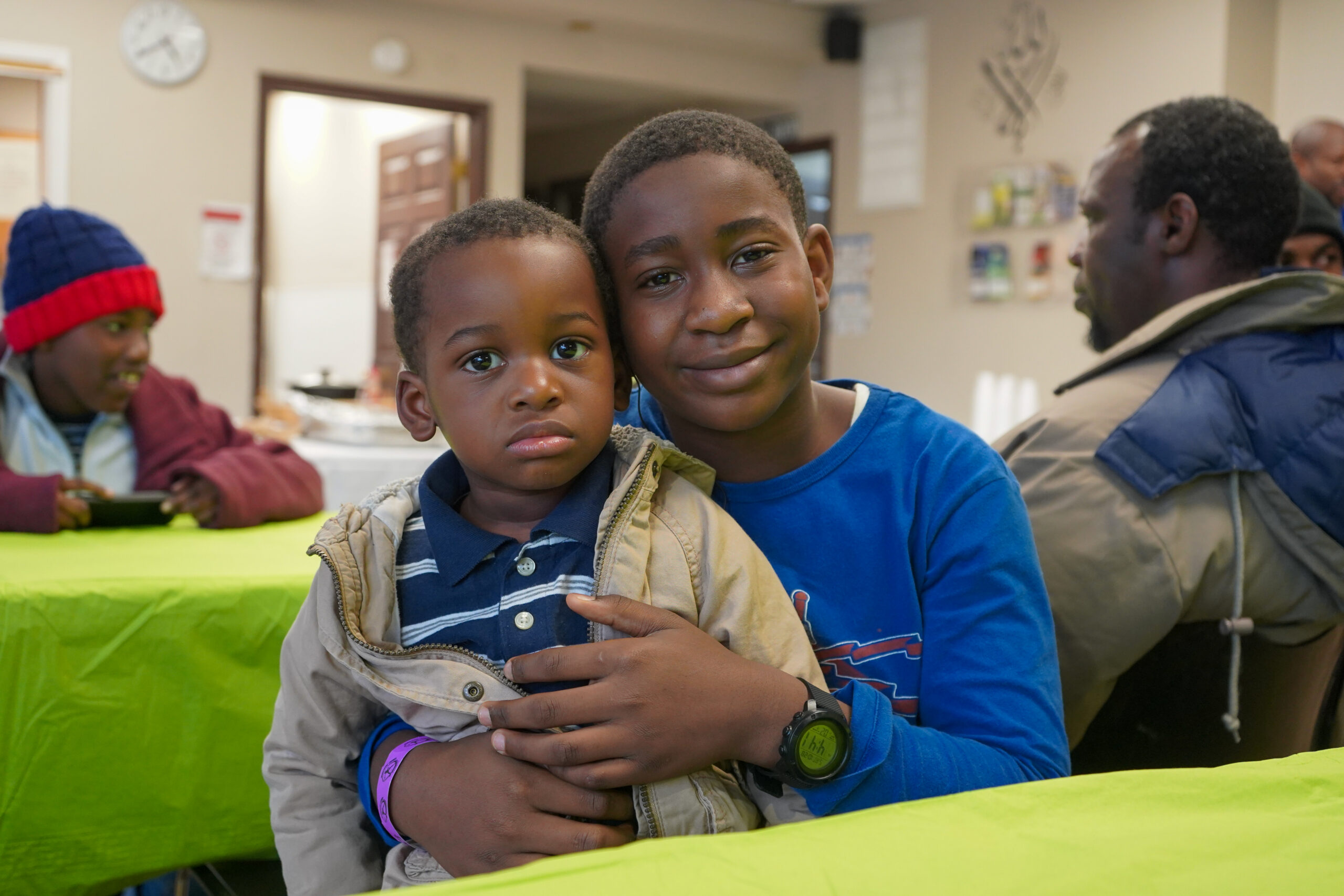
Fatima Perry met the women from Nigeria at the Dawah Center. “They are happy to be in America, but it is still not easy to move your family to a whole new country. One was looking for a car to buy without paying interest. Another said her husband is looking for work. He can do anything with computers. She also has a daughter she is trying to get enrolled in college.”
She described the group as well-educated, skilled and knowledgeable about the world. Some have even taught in other countries, she said.
However, Fatima, who “comes from a long line of teachers,” thinks they might find teaching here a challenge. “It won’t be what they are used to. In Africa, the children are more polite and respect teachers. The kids in Nigeria are more disciplined. They highly value education. And their families won’t tolerate their children acting out in school.”
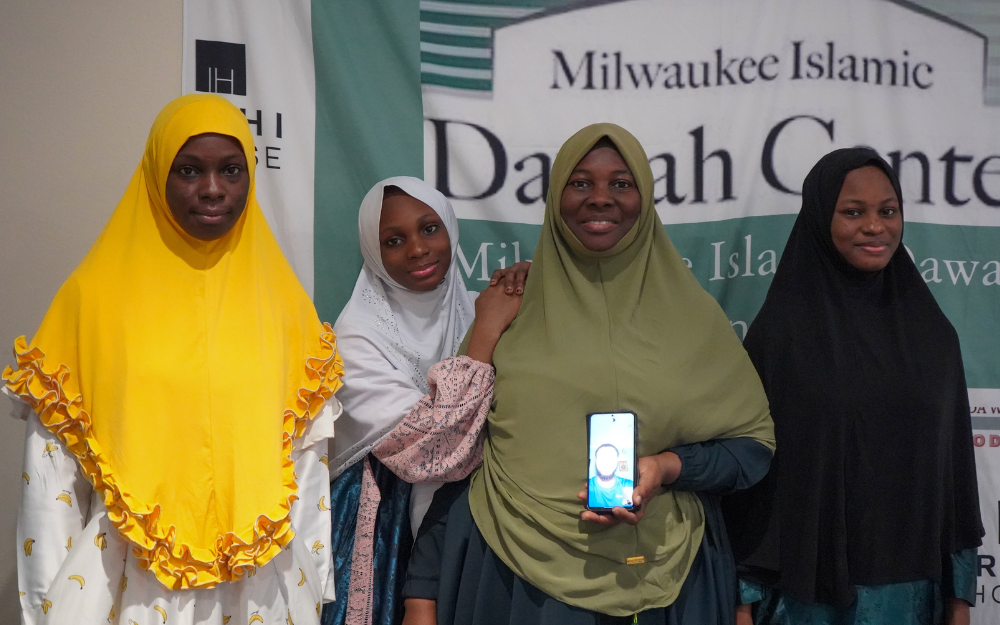
Daily life will also have its challenges, said Konneh. “It can get complicated.” For example, when you go see a doctor in Africa, you go to one doctor or one clinic, he explained. Here, if they need to find a doctor, they need to know what kind of doctor or clinic and whether or not that doctor accepts their insurance. “What we do is help people find their way. It’s our responsibility to help them get on the right path here.”
The Mandingo Community Committee will help them with their specific situations, he said. “If they are looking for a mosque or a church, we will consider their faith and where they live to find the best fit. If they are looking for schools or services, we can help.” In the past, they have even helped new immigrants who needed to make funeral arrangements.
Osho’s husband came as a dependent. In order to work, he would need a work visa, she explained. The couple are looking into his options.
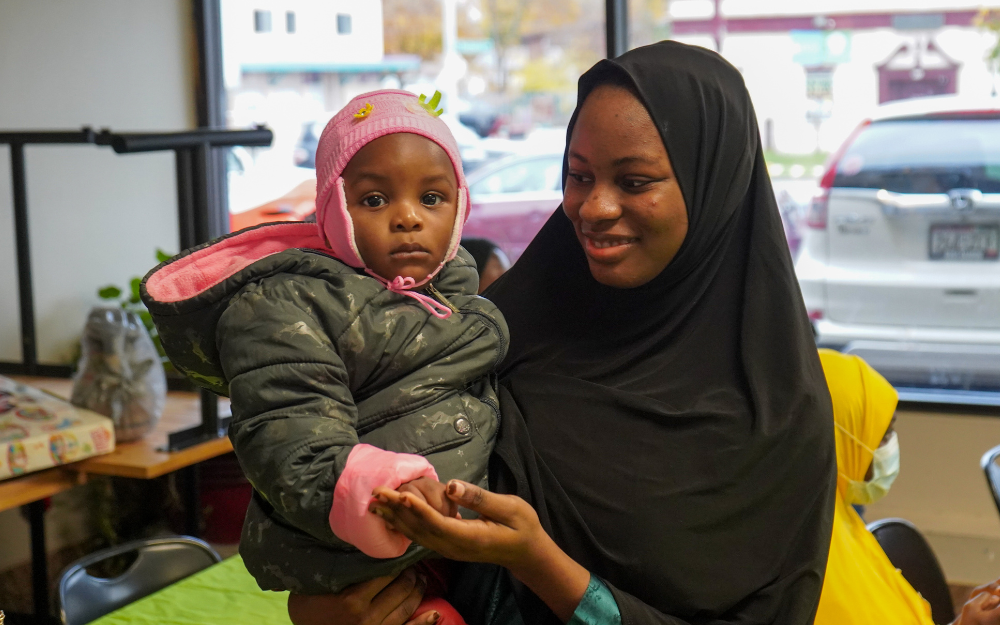
“Most of the women are school teachers,” Perry noted. “The husbands don’t have the same access to employment, although I believe one is a professor and another a mathematician. We will try to network to help them solve that issue.
Besides the big questions, there are so many other things they need to know, Konneh added. “Wisconsin is a great place to live and to raise a family but you have to know how to dress properly for the weather. If you catch the bus, you’ve got to dress real warm. This isn’t the kind of weather we were used to back in Africa where we get two seasons, a rainy season and a dry season.”
Why they help
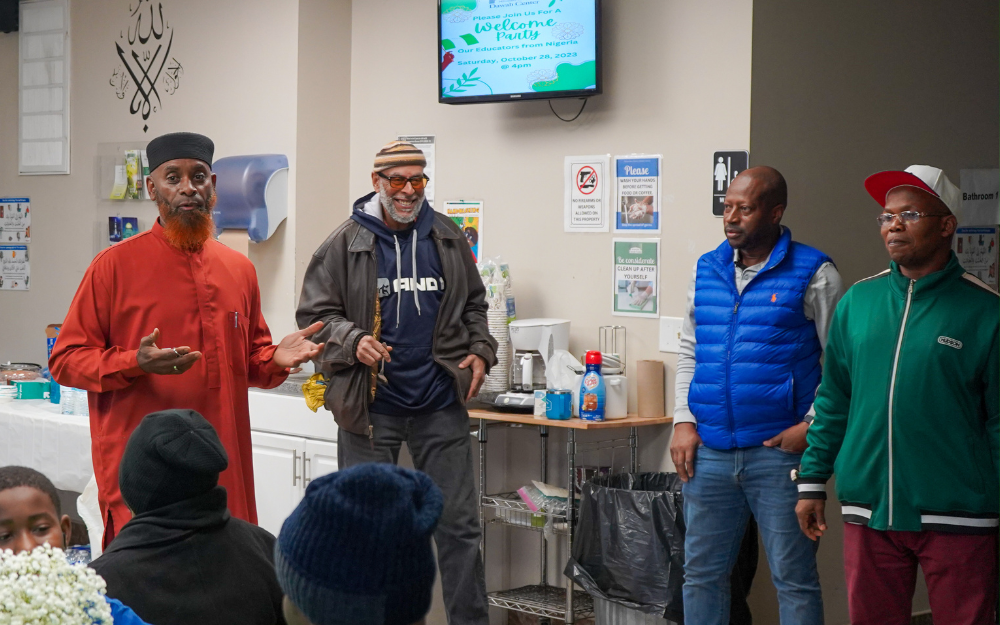
When Hassan came to Wisconsin in 2014, “it was not easy,” he recalled. “I know how I suffered. Everyone here is busy. It is hard to ask someone for help.” Finally, a couple of people helped me navigate my way.”
As a Muslim, it is his duty to help anyone who needs help, regardless of their faith or background, he said. “My religion teaches we need to help our neighbors. We need to help anybody. Humans need to help humans. I have a heart to help.”
“We help them because it’s the right thing to do,” Konneh added.
Sharing information with newcomers and making them feel welcomed “makes a tremendous impact,” he said. “But it is not enough. They will need more help. It’s a start.”
